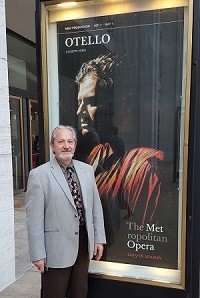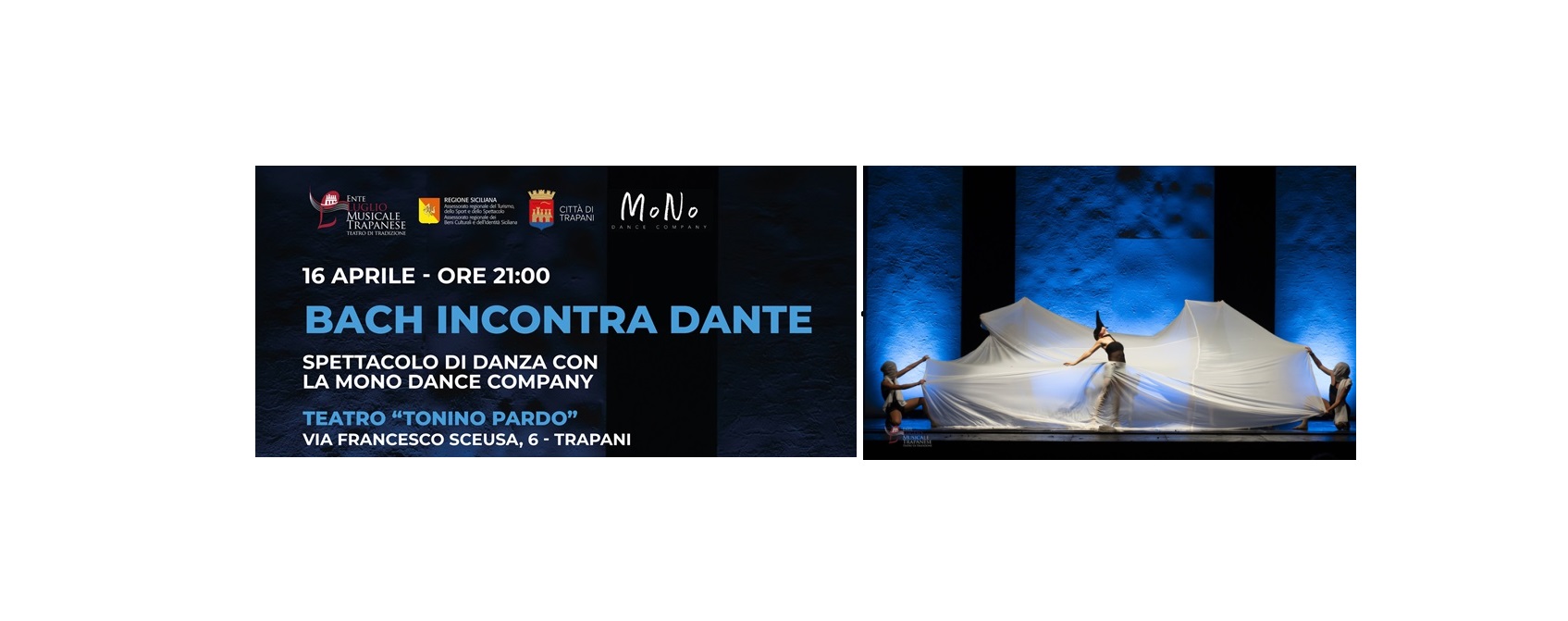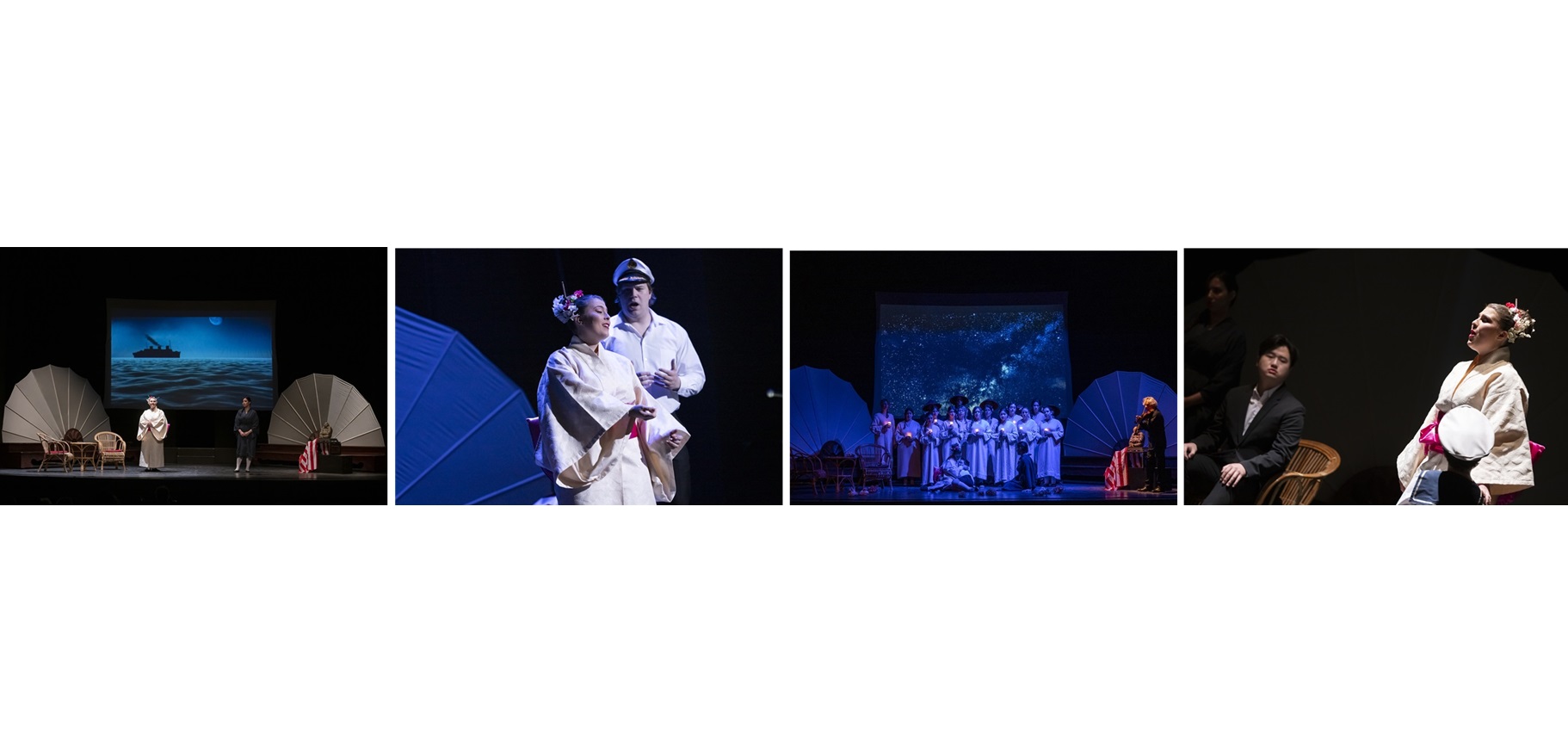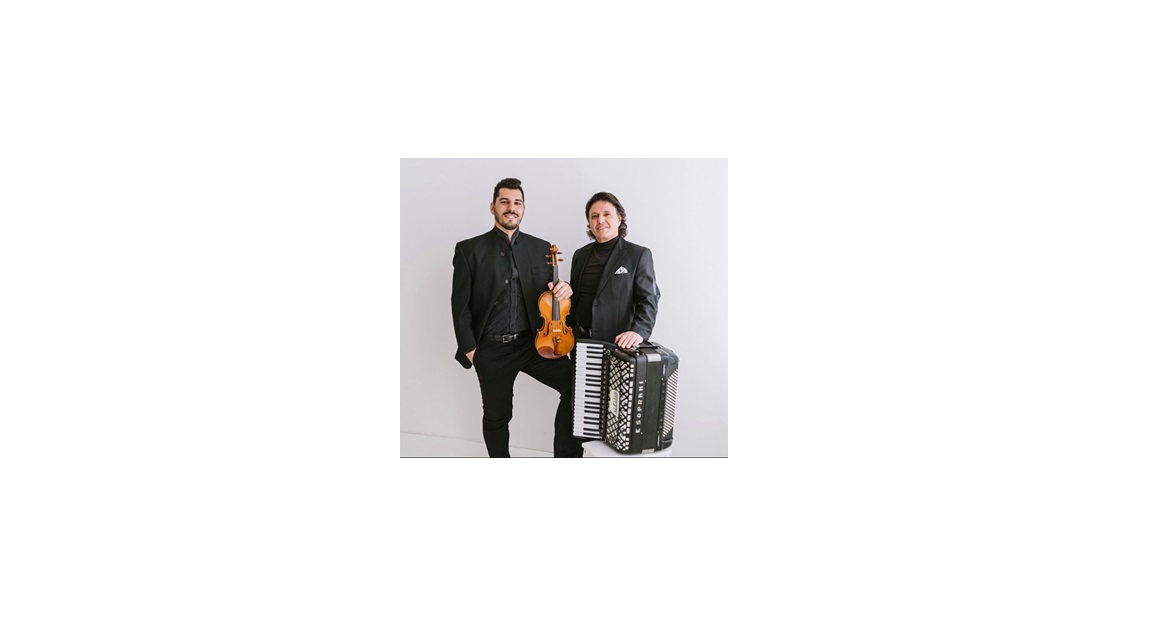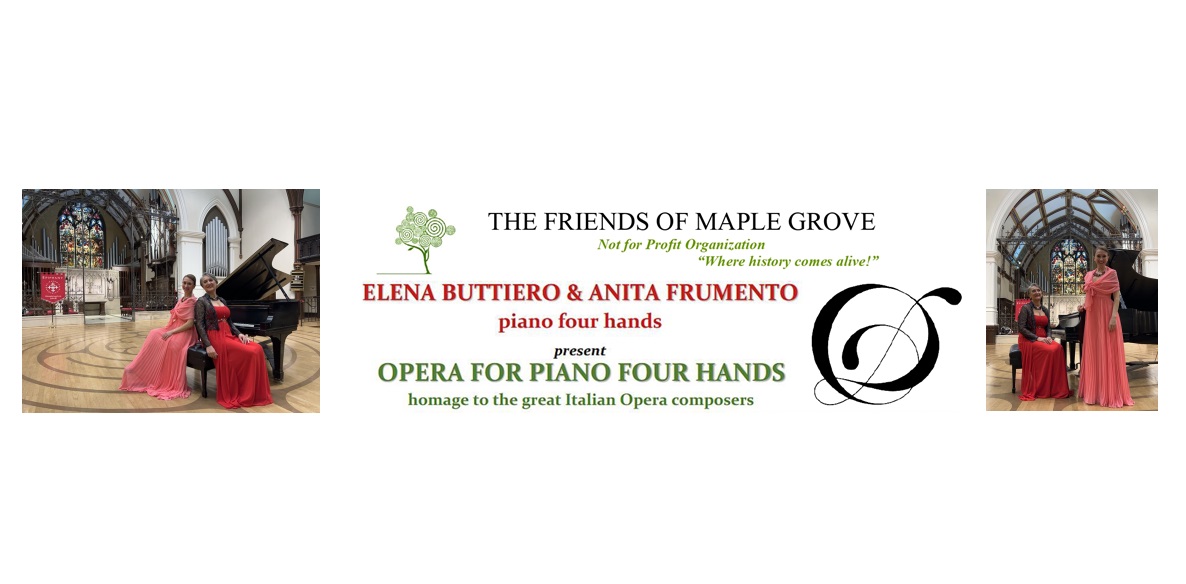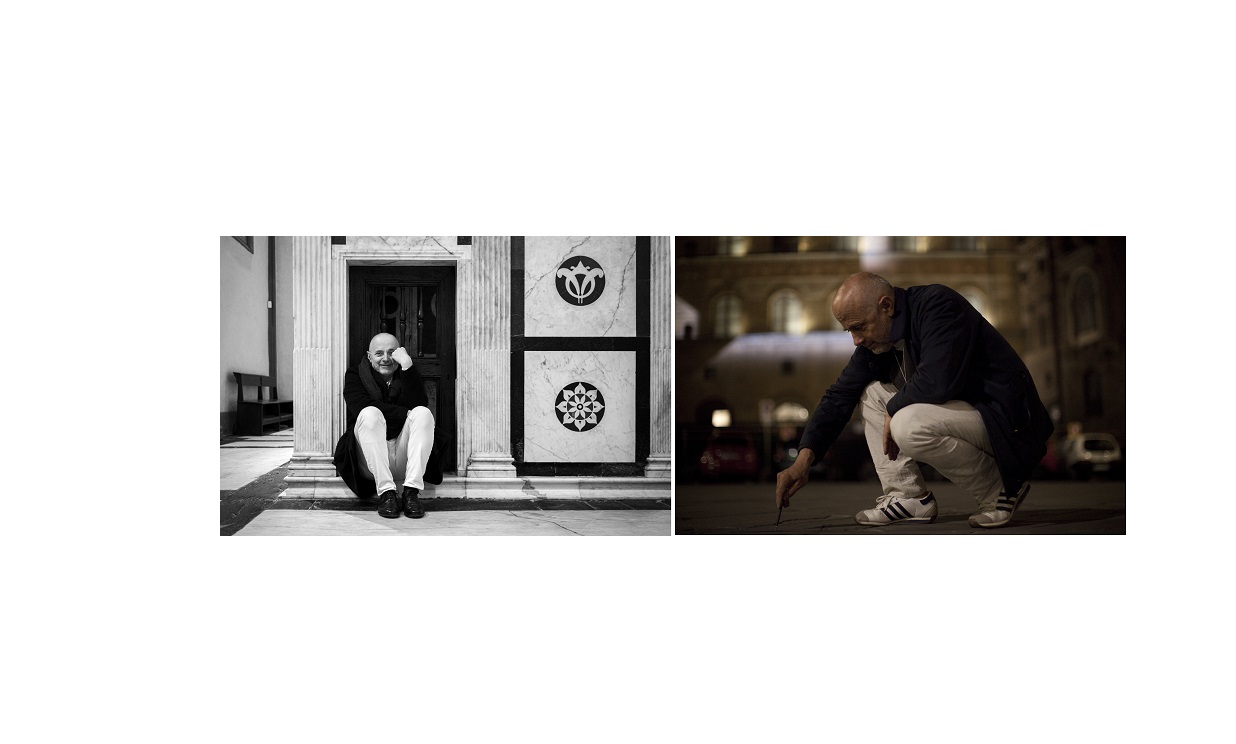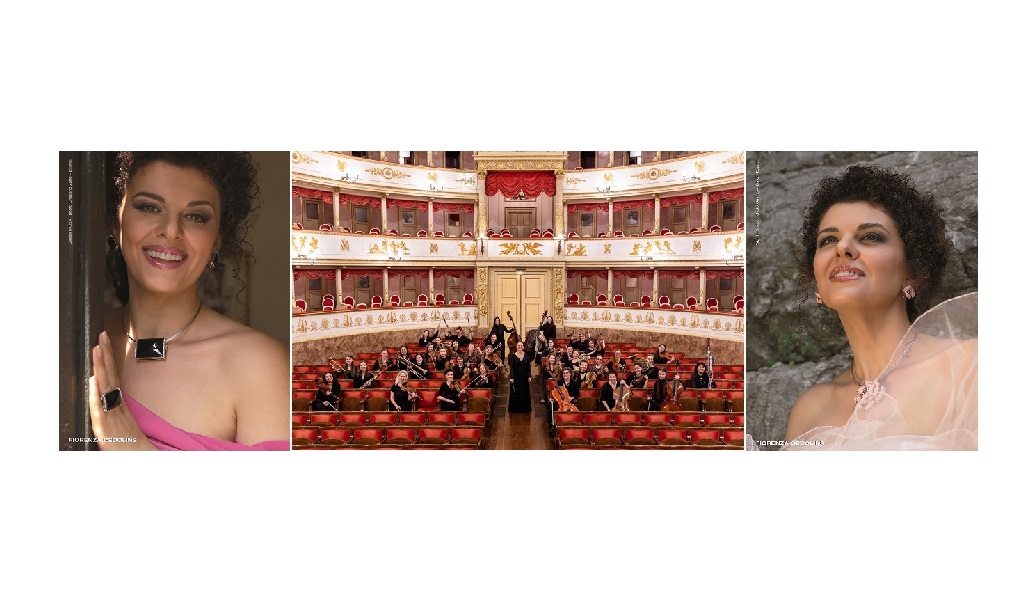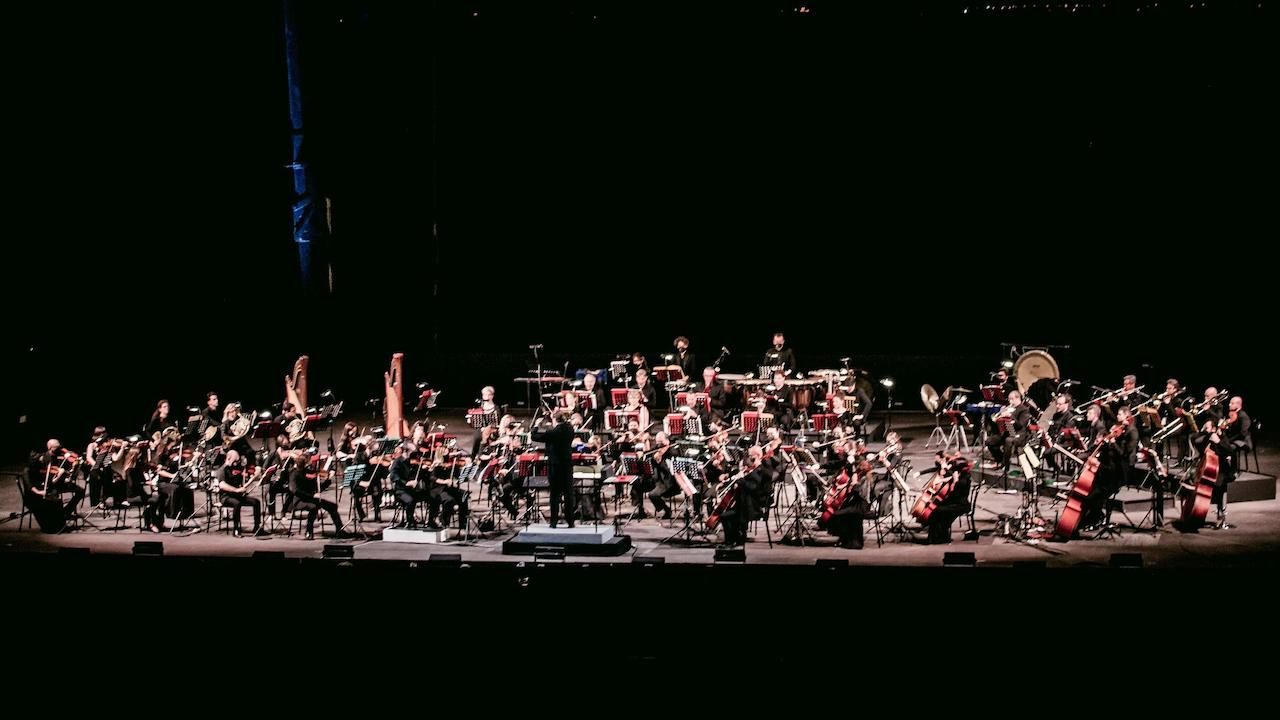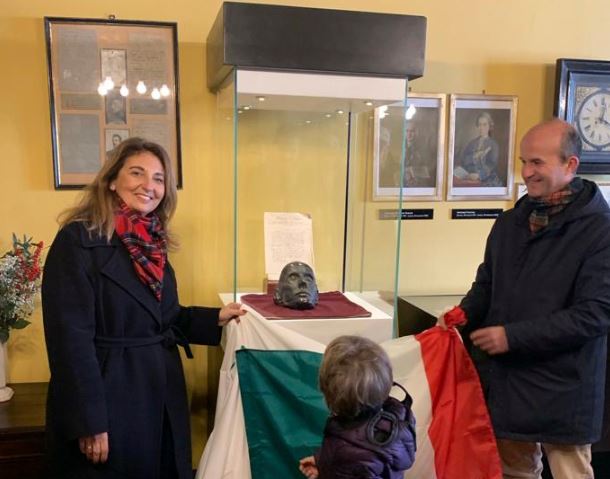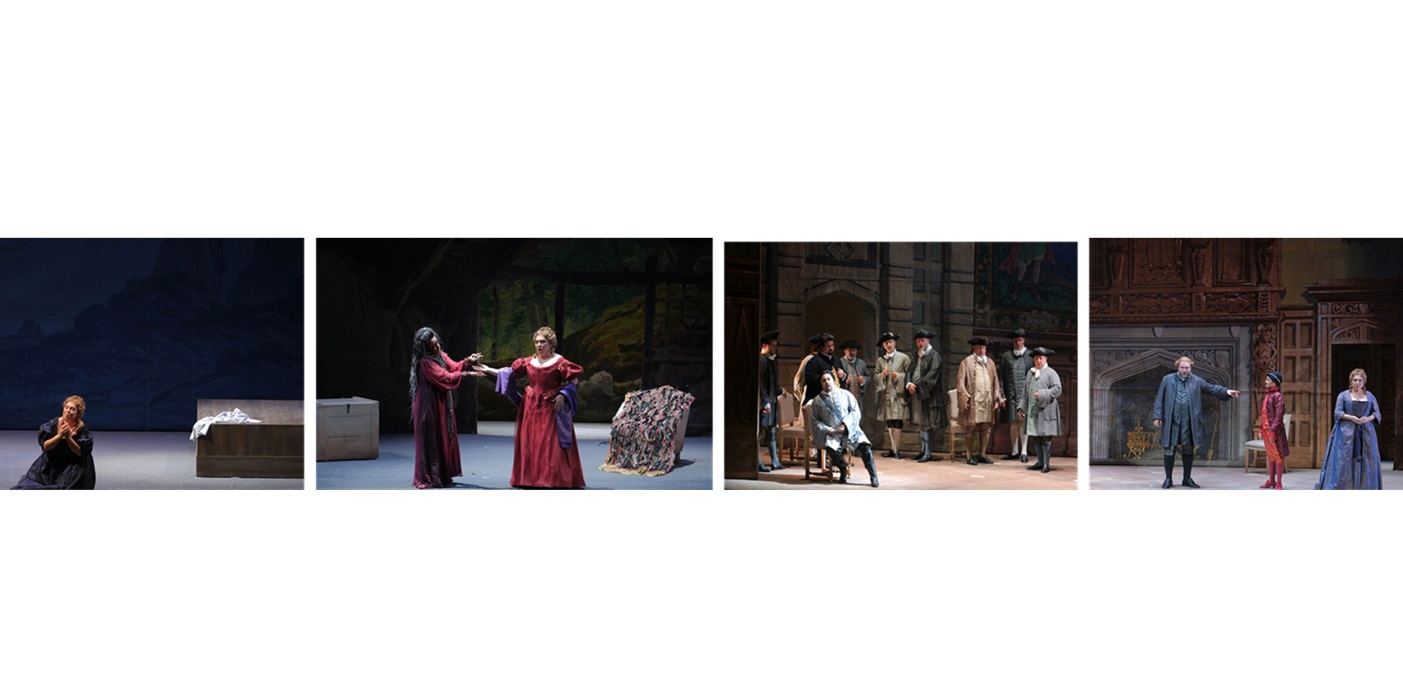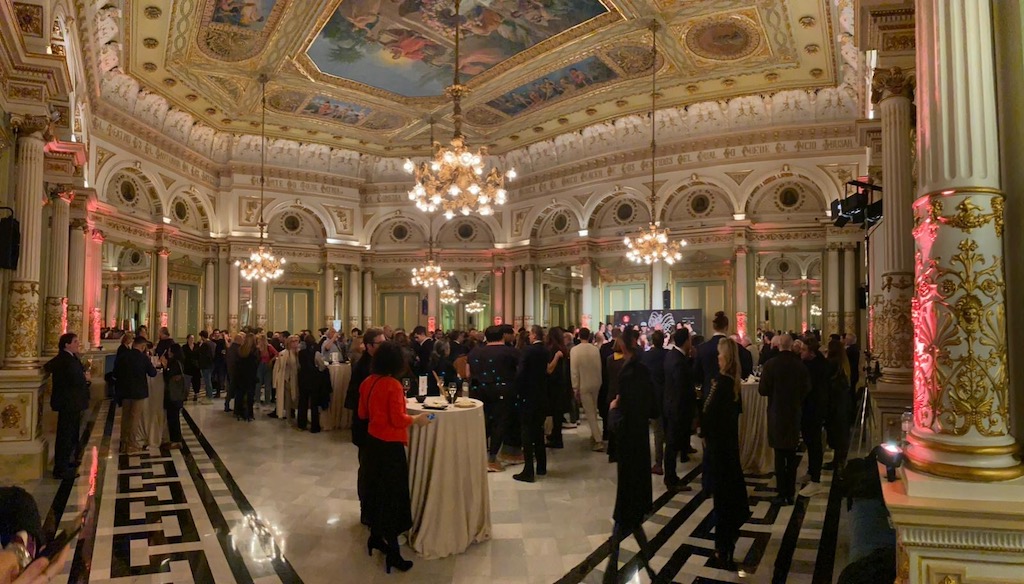Faust
Charles Gounod
Libretto by Jules Barbier and Michel Carré
Conducted by Carl and Sally Gable Music Director Arthur Fagen
Directed by Louisa Muller
Sung in French with projected English translations
In Gounod’s operatic retelling of the famous legend, an elderly scholar sells his soul to the devil Méphistophélès for a chance to seduce the beautiful Marguerite. Faust’s diabolical struggle between good and evil must surely end in tragedy…
Or does it?
 |
 |
 |
 |
 |
|
||||
| Noah Stewart Faust |
Mary Dunleavy Marguerite |
Alexander Vinogradov Méphistophélès |
Arthur Fagen Carl & Sally Gable Music Director |
Louisa Muller Stage Director |
Synopsis
Act I
Alone at his desk, Faust peers into the dark chasm of his being. Bitter and disillusioned, he contemplates the vial of poison before him. Voices of happy villagers carry through the open window; he curses them and their maker and invokes the name of Satan. Much to Faust’s surprise, Méphistophélès appears and offers him exactly what he wants — another chance at life — in exchange for his soul. The philosopher hesitates, but after seeing an image of the fair Marguerite, he heartily accepts the bargain. Drinking the vial, now an elixir of youth, Faust goes out into the village with Méphistophélès as his companion.
Act II
At the county fair, villagers, soldiers and country folk amuse themselves with a drinking song. Valentin has a final moment with his friends, Wagner and Siébel, before going off to war. He laments having to leave his sister alone with no family. Siébel offers his services as protector, and Valentin solemnizes the oath with a prayer to God.
Méphistophélès joins in the villagers’ revelries. He offers a song of his own — a tribute celebrating the biblical Golden Calf and the bacchanals that go along with it. Wagner offers a glass of wine, but Méphistophélès instead grabs the student’s hand, noting a dark future present in its lines. For Siébel, Méphistophélès prophesizes that any flower the ardent young man shall touch will wither away; for Valentin, death, not in battle, but at the hand of someone known to him. Angered, Valentin provokes Méphistophélès into a fight, but Méphistophélès easily breaks the soldier’s sword at its first stroke. Now realizing his opponent’s true nature, Valentin uses the cruciform hilt of the sword to fend off evil as he and his colleagues fall in retreat.
The community gathers for a dance. Faust is among them, hoping to encounter Marguerite. She arrives presently, just back from church. Siébel attempts to attract her attention but is prevented by Méphistophélès at every opportunity. Faust introduces himself and gallantly offers to escort Marguerite, but she modestly declines and returns home alone.
Act III
Siébel waits in Marguerite’s garden. He hopes a gift of flowers will make her understand the depth of his affection. Although the posies wilt as soon as the young man touches it (as Méphistophélès predicted), Siébel finds a little holy water does the trick, and he leaves the revived bouquet on Marguerite’s doorstep. Faust and Méphistophélès lurk in the thicket, observing Siébel’s actions. They present an offering of their own — a casket packed with jewels — and place it strategically next to Siébel’s offering. Marguerite arrives, still distracted by the man who approached her in the square. She casually acknowledges the bouquet, but her attention is caught up in the treasure trove, and once clad in the jewels, she imagines herself transformed into a princess.
Marthe, an older neighbor, observes her gaiety. Hardly concerned by the mysterious nature of the gift, she advises Marguerite to keep the jewels, as they must be from an admirer. Méphistophélès returns with Faust and discloses that Marthe’s missing husband is, in fact, dead. The widow experiences a moment of remorse but is easily comforted by the alluring stranger. As Faust makes overtures to Marguerite, Marthe and Méphistophélès explore their new feelings together.
Marguerite unveils her sad lot to Faust. With both mother and sister gone, and Valentin off to battle, she is completely alone in the world. Faust offers his love and protection, but Marguerite is guarded. She puts her faith in a daisy and begins a childish game of plucking the petals. Only when the flower reveals the depth of Faust’s passion does her resolve begin to crumble, and the scene ends with a rapturous love duet.
Act IV
Scene One:
In her room, Marguerite is taunted by the village girls outside. Faust has deserted her just as she is about to expect their child. She laments the consequences of her actions. Siébel, her only remaining friend, vows to kill Faust for his heartless behavior. She begs him to let it be — in spite of all that has happened, her love for Faust has not diminished.
Scene Two:
Valentin and the other soldiers return victorious from battle. He happens upon Siébel and immediately asks of his sister’s welfare. Siébel hesitates and, as they approach Marguerite’s home, he tries to prevent Valentin from going inside. The ploy is unsuccessful — Valentin enters and is shocked to find Marguerite has had Faust’s child. Meanwhile, Méphistophélès and Faust have returned to the village, for the latter regrets abandoning Marguerite. Méphistophélès sings a serenade to lure Marguerite out of the house but Valentin appears instead, and enraged by their presence, challenges Faust to a duel. With Méphistophélès’s unearthly assistance, Faust is the easy victor, and mortally wounded, Valentin places a curse upon his sister as she rushes to his side.
Scene Three:
Marguerite prays for salvation at the local church, but Méphistophélès torments her with a hellish fate — God has turned his back in her hour of need. A mortal struggle between redemption and eternal damnation ensues as invisible voices from beyond offer Marguerite little comfort.
Act V
Scene One:
As a distraction Méphistophélès invites Faust to celebrate the feast of Walpurgis Night, the evening before May 1. In the darkness of the Harz Mountains, a witches’ sabbath is in process. Fearful at first, Faust eventually joins in toasting everlasting oblivion with the attending witches, demons and courtesans of antiquity, who dance an infernal ballet. In the drunken chaos, Faust sees another vision of Marguerite, this time on death row with a blood-red circle around her neck. With sudden sobriety, Faust vows to set her free.
Scene Two:
Marguerite has been imprisoned for the crime of infanticide. Faust gains entry to the prison cell and begs her to escape with him. Demented with guilt, Marguerite refuses his proposal and somberly awaits her march to the scaffold. Méphistophélès is troubled by Faust’s insistence that she leave — with the execution, he believes another soul will be placed in his care. He demands that Faust leave at once, or be cast aside. Marguerite sees the demon for who he really is and implores the celestial powers to save her. As she dies, Méphistophélès is vexed when Marguerite, judged and forgiven of her crimes, ascends to the heavens.
Courtesy of The Minnesota Opera
 |
The original oil paintings for each opera were painted by Atlanta-based artist Matt Hughes. Over the years, Matt has evolved his painting style, refining his craft to become internationally recognized as a respected and highly sought-after artist. At left, Matt puts finishing touches on the painting of Faust and Méphistophélès. Matt’s portrait and conceptual work can be seen at MattHughesArt.com.
The oil paintings will be on display at the Cobb Energy Centre for each production and auctioned to the highest bidder at The 2013 Atlanta Opera Ball Puccini’s Palazzo, on October 26, 2013 at the St. Regis–Atlanta |









